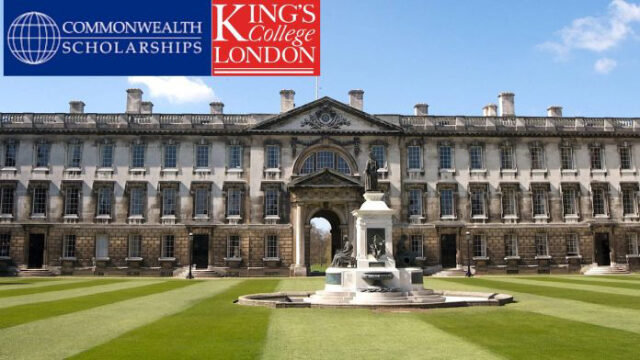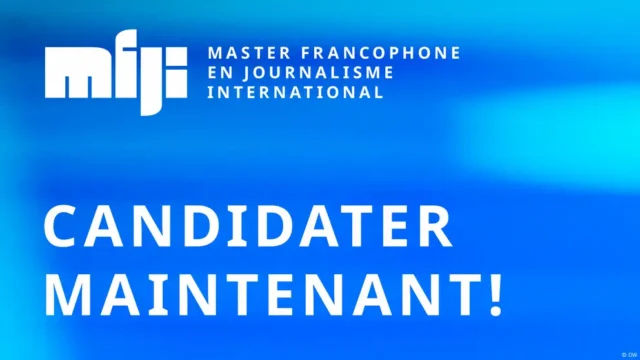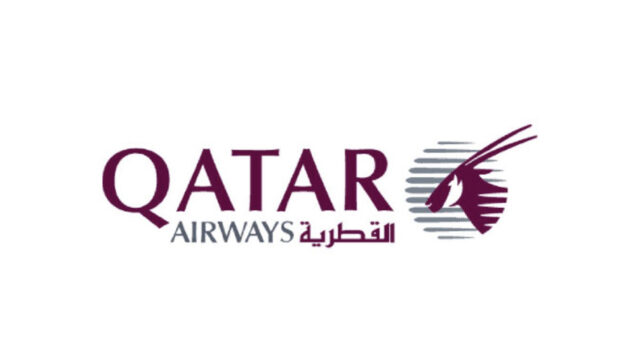Popular
Fully funded to France. Apply now for this scholarship for international students. (No IELTS Required)
This post features a list of fully funded undergraduate and postgraduate scholarships available in France.
France continues to be a leading destination for international students, renowned for its multicultural environment, high-quality education, numerous scholarship opportunities, and affordable tuition fees for both paid and self-funded students.
Additional Information
Program Type
Fully Funded
Program Benefits
Here are some potential benefits of studying in France through fully funded scholarships:
1. **No Tuition Fees or Reduced Costs**: Many scholarships cover tuition, making education in France more affordable or completely free.
2. **Living Stipends**: Fully funded scholarships often include a monthly living allowance to cover accommodation, food, and other expenses, ensuring students can focus on their studies without financial strain.
3. **World-Class Education**: France is home to some of the world’s top universities and institutions, offering high-quality programs in various fields, from the arts to engineering and business.
4. **Cultural Experience**: Studying in France provides the opportunity to immerse yourself in a rich cultural and historical environment, enhancing both your personal and academic growth.
5. **Networking Opportunities**: France offers access to a diverse international student community and the chance to build a global professional network with peers and professors.
6. **Post-Graduation Opportunities**: France has a robust job market for international graduates, particularly in sectors like technology, business, and research, with opportunities for work visas after graduation.
7. **Travel and Exploration**: Living in France gives students the chance to travel across Europe with ease, experiencing different cultures and broadening their global perspective.
8. **Language Skills**: Although many programs are taught in English, studying in France offers the chance to learn or improve your French language skills, which is a valuable asset in today’s global job market.
9. **Academic Excellence**: France is home to prestigious institutions like the Sorbonne and École Normale Supérieure, offering students access to top-tier professors and resources.
10. **Support and Resources**: Fully funded scholarships often come with dedicated support services, including mentorship, academic counseling, and career services to ensure student success.
1. **No Tuition Fees or Reduced Costs**: Many scholarships cover tuition, making education in France more affordable or completely free.
2. **Living Stipends**: Fully funded scholarships often include a monthly living allowance to cover accommodation, food, and other expenses, ensuring students can focus on their studies without financial strain.
3. **World-Class Education**: France is home to some of the world’s top universities and institutions, offering high-quality programs in various fields, from the arts to engineering and business.
4. **Cultural Experience**: Studying in France provides the opportunity to immerse yourself in a rich cultural and historical environment, enhancing both your personal and academic growth.
5. **Networking Opportunities**: France offers access to a diverse international student community and the chance to build a global professional network with peers and professors.
6. **Post-Graduation Opportunities**: France has a robust job market for international graduates, particularly in sectors like technology, business, and research, with opportunities for work visas after graduation.
7. **Travel and Exploration**: Living in France gives students the chance to travel across Europe with ease, experiencing different cultures and broadening their global perspective.
8. **Language Skills**: Although many programs are taught in English, studying in France offers the chance to learn or improve your French language skills, which is a valuable asset in today’s global job market.
9. **Academic Excellence**: France is home to prestigious institutions like the Sorbonne and École Normale Supérieure, offering students access to top-tier professors and resources.
10. **Support and Resources**: Fully funded scholarships often come with dedicated support services, including mentorship, academic counseling, and career services to ensure student success.
Eligibility Criteria
Here are some common eligibility criteria for fully funded scholarships in France:
1. **Academic Requirements**:
- For undergraduate scholarships: Completion of high school education (secondary school diploma or equivalent) and a strong academic record.
- For postgraduate scholarships: A relevant undergraduate degree or equivalent qualification, with a competitive GPA.
2. **Nationality**:
- Applicants must be international students (non-French citizens). Some scholarships may have specific geographic requirements, such as targeting students from certain countries or regions.
3. **Age Limit**:
- Many scholarships have an age limit, typically ranging from 18 to 35 years old, depending on the program and degree level.
4. **Language Proficiency**:
- Depending on the program, proof of proficiency in French or English may be required. Common language tests include the DELF/DALF for French and TOEFL/IELTS for English.
5. **Relevant Field of Study**:
- Some scholarships are subject-specific, and applicants must apply for programs related to their field of interest (e.g., STEM, arts, business, etc.).
6. **Good Health**:
- Some programs may require applicants to submit a medical certificate confirming they are fit to study abroad.
7. **Motivation and Recommendation Letters**:
- Applicants may need to provide personal statements, letters of motivation, and/or recommendation letters from academic or professional references.
8. **Previous Scholarship Restrictions**:
- Some scholarships may not be available to students who have previously received a particular type of funding or scholarship from another source.
9. **Research Proposal (for Postgraduate Programs)**:
- For research-based scholarships, applicants may need to submit a research proposal outlining their academic interests or planned study.
10. **Commitment to Return**:
- Some scholarships require that students return to their home country after completing their studies to contribute to their country's development.
11. **Application Deadlines**:
- Applicants must ensure they submit their applications before the specified deadlines, which may vary by program.
(Note: Specific eligibility criteria can vary by scholarship program, so applicants should always check the detailed requirements of the scholarship they are interested in.)
1. **Academic Requirements**:
- For undergraduate scholarships: Completion of high school education (secondary school diploma or equivalent) and a strong academic record.
- For postgraduate scholarships: A relevant undergraduate degree or equivalent qualification, with a competitive GPA.
2. **Nationality**:
- Applicants must be international students (non-French citizens). Some scholarships may have specific geographic requirements, such as targeting students from certain countries or regions.
3. **Age Limit**:
- Many scholarships have an age limit, typically ranging from 18 to 35 years old, depending on the program and degree level.
4. **Language Proficiency**:
- Depending on the program, proof of proficiency in French or English may be required. Common language tests include the DELF/DALF for French and TOEFL/IELTS for English.
5. **Relevant Field of Study**:
- Some scholarships are subject-specific, and applicants must apply for programs related to their field of interest (e.g., STEM, arts, business, etc.).
6. **Good Health**:
- Some programs may require applicants to submit a medical certificate confirming they are fit to study abroad.
7. **Motivation and Recommendation Letters**:
- Applicants may need to provide personal statements, letters of motivation, and/or recommendation letters from academic or professional references.
8. **Previous Scholarship Restrictions**:
- Some scholarships may not be available to students who have previously received a particular type of funding or scholarship from another source.
9. **Research Proposal (for Postgraduate Programs)**:
- For research-based scholarships, applicants may need to submit a research proposal outlining their academic interests or planned study.
10. **Commitment to Return**:
- Some scholarships require that students return to their home country after completing their studies to contribute to their country's development.
11. **Application Deadlines**:
- Applicants must ensure they submit their applications before the specified deadlines, which may vary by program.
(Note: Specific eligibility criteria can vary by scholarship program, so applicants should always check the detailed requirements of the scholarship they are interested in.)
Application Procedure
Here is a general application procedure for fully funded scholarships in France:
### 1. **Research Available Scholarships**
- Begin by identifying scholarships that suit your academic goals, level of study (undergraduate or postgraduate), and field of interest.
- Visit official scholarship websites, universities, or government portals to find detailed information about eligibility criteria, benefits, and deadlines.
### 2. **Review the Eligibility Criteria**
- Carefully read through the eligibility requirements to ensure you meet all the conditions, such as academic qualifications, language proficiency, nationality, and age limits.
- Check the application deadlines to ensure you have enough time to prepare all required documents.
### 3. **Prepare Required Documents**
Gather the necessary documents as per the scholarship's requirements. Common documents include:
- **Academic Transcripts**: Proof of previous studies (e.g., high school diploma, undergraduate degree).
- **Curriculum Vitae (CV)**: An updated resume detailing your academic background, work experience, skills, and extracurricular activities.
- **Motivation Letter**: A personal statement explaining why you want to study in France, your academic and career goals, and why you are a good candidate for the scholarship.
- **Recommendation Letters**: Usually from professors, academic advisors, or employers who can speak to your abilities and qualifications.
- **Language Proficiency Test Results**: Proof of English (e.g., TOEFL/IELTS) or French (e.g., DELF/DALF) language skills, depending on the program's language of instruction.
- **Research Proposal (for postgraduate students)**: If applicable, submit a detailed research proposal outlining your study objectives or thesis topic.
### 4. **Complete the Application Form**
- Fill out the scholarship application form accurately, providing all the requested personal and academic information.
- Double-check for any specific instructions regarding the format or submission method (online or paper application).
### 5. **Submit Your Application**
- Submit your completed application along with the required documents before the deadline. Many scholarships require online submission, while others may ask you to send hard copies to a specific address.
- Ensure you receive a confirmation email or receipt of your application submission.
### 6. **Prepare for an Interview (if applicable)**
- Some scholarship programs may require an interview as part of the selection process. If selected for an interview, be prepared to discuss your motivation for studying in France, your academic background, and your future goals.
- Practice answering common interview questions and ensure you can articulate how the scholarship aligns with your academic and career objectives.
### 7. **Wait for the Results**
- After submitting your application, scholarship committees will review applications and shortlist candidates. This process can take several weeks or months.
- Be patient, and monitor your email or scholarship portal for notifications of the selection outcome.
### 8. **Acceptance and Visa Application**
- If you are awarded the scholarship, you will receive an offer letter or scholarship award notice. Follow the instructions carefully to accept the offer.
- Use the scholarship award letter to apply for a student visa (if required), ensuring you meet all visa requirements for studying in France.
### 9. **Final Preparations**
- Once your visa is approved, make travel and accommodation arrangements. Many scholarship programs also provide assistance in this process.
- Attend any pre-departure orientation sessions or workshops offered by the scholarship provider.
### 10. **Arrive in France and Begin Your Studies**
- Upon arrival in France, complete any necessary registration procedures with your university and the scholarship provider.
- Follow all the scholarship guidelines throughout your studies to ensure continued funding and support.
(Note: The application procedure can vary by scholarship program, so be sure to read the specific instructions for each scholarship you apply to.)
### 1. **Research Available Scholarships**
- Begin by identifying scholarships that suit your academic goals, level of study (undergraduate or postgraduate), and field of interest.
- Visit official scholarship websites, universities, or government portals to find detailed information about eligibility criteria, benefits, and deadlines.
### 2. **Review the Eligibility Criteria**
- Carefully read through the eligibility requirements to ensure you meet all the conditions, such as academic qualifications, language proficiency, nationality, and age limits.
- Check the application deadlines to ensure you have enough time to prepare all required documents.
### 3. **Prepare Required Documents**
Gather the necessary documents as per the scholarship's requirements. Common documents include:
- **Academic Transcripts**: Proof of previous studies (e.g., high school diploma, undergraduate degree).
- **Curriculum Vitae (CV)**: An updated resume detailing your academic background, work experience, skills, and extracurricular activities.
- **Motivation Letter**: A personal statement explaining why you want to study in France, your academic and career goals, and why you are a good candidate for the scholarship.
- **Recommendation Letters**: Usually from professors, academic advisors, or employers who can speak to your abilities and qualifications.
- **Language Proficiency Test Results**: Proof of English (e.g., TOEFL/IELTS) or French (e.g., DELF/DALF) language skills, depending on the program's language of instruction.
- **Research Proposal (for postgraduate students)**: If applicable, submit a detailed research proposal outlining your study objectives or thesis topic.
### 4. **Complete the Application Form**
- Fill out the scholarship application form accurately, providing all the requested personal and academic information.
- Double-check for any specific instructions regarding the format or submission method (online or paper application).
### 5. **Submit Your Application**
- Submit your completed application along with the required documents before the deadline. Many scholarships require online submission, while others may ask you to send hard copies to a specific address.
- Ensure you receive a confirmation email or receipt of your application submission.
### 6. **Prepare for an Interview (if applicable)**
- Some scholarship programs may require an interview as part of the selection process. If selected for an interview, be prepared to discuss your motivation for studying in France, your academic background, and your future goals.
- Practice answering common interview questions and ensure you can articulate how the scholarship aligns with your academic and career objectives.
### 7. **Wait for the Results**
- After submitting your application, scholarship committees will review applications and shortlist candidates. This process can take several weeks or months.
- Be patient, and monitor your email or scholarship portal for notifications of the selection outcome.
### 8. **Acceptance and Visa Application**
- If you are awarded the scholarship, you will receive an offer letter or scholarship award notice. Follow the instructions carefully to accept the offer.
- Use the scholarship award letter to apply for a student visa (if required), ensuring you meet all visa requirements for studying in France.
### 9. **Final Preparations**
- Once your visa is approved, make travel and accommodation arrangements. Many scholarship programs also provide assistance in this process.
- Attend any pre-departure orientation sessions or workshops offered by the scholarship provider.
### 10. **Arrive in France and Begin Your Studies**
- Upon arrival in France, complete any necessary registration procedures with your university and the scholarship provider.
- Follow all the scholarship guidelines throughout your studies to ensure continued funding and support.
(Note: The application procedure can vary by scholarship program, so be sure to read the specific instructions for each scholarship you apply to.)
Fully funded to France. Apply now for this scholarship for international students. (No IELTS Required) 0 reviews
Login to Write Your ReviewThere are no reviews yet.







